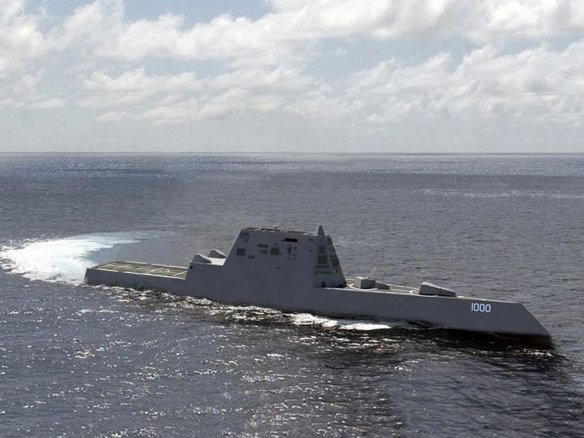DDG-1000 Zumwalt / DD(X) Multi-Mission Surface Combatant Future Surface Combatant.
I. B. Holley concluded his 1953 seminal study, Ideas and Weapons, by observing that “to exist in a warring world the nation must pick winning weapons; if military analysts will distill every possible lesson from the history of two world wars such weapons will be easier to find and the odds on national survival will go up.” Holley assumed that senior military officers are receptive to potentially destabilizing intellectual analyses. The irony is that the modern U.S. Army and U.S. Air Force cultivate intellectual growth within their officer corps, especially in history, more than the U.S. Navy. Yet the army and air force seem more restrictive in their internal dialectics. The U.S. Navy has tolerated broad debate within its officer corps, yet today does little to encourage historical thinking. Almost fifty years after Holley, it seems a broad spectrum of dynamics—from thought styles and professional rivalry to the defense of the dominant technological paradigm from competing technologies—have clouded naval perceptions of which technology is a “winner.”
A century after the heyday of its historical prophet, Alfred Thayer Mahan, the American naval profession, always technically oriented, has become increasingly a technocracy in which historical analysis has been pushed to the far periphery. Chief of Naval Operations Johnson has stated repeatedly that the navy cannot steer by its wake into the next century. One can compare Johnson’s pronouncement with the progressivism of automobile pioneer Charles Kettering, who often said, “You never get anywhere looking in your rearview mirror.” Kettering, however, was a technological innovator, not the guardian of an established technological paradigm. Many officers of the modern naval profession confuse technical competence with an understanding of technology, embodying Henry Ford’s dictum “history is bunk.” Modern naval leaders routinely tout “thinking outside the box,” but the absence of historical understanding of the dynamics of technology and change merely reinforces their selfreferential thinking and their allegiance to their current castles of steel.
During the twenty-first century many developing countries will acquire sophisticated weapons. They will be least able to afford them and most likely to use them in conflicts exacerbated by their hypernationalism. The U.S. Navy will often be involved either as peacekeeper or enforcer, operating “from the sea.” If the American naval profession refuses to pay attention to its wake—as any competent deck officer does—its members may find the U.S. Navy steaming full circle, like the doomed battleship Bismarck, and falling victim to someone else’s ability to perceive and exploit an effective presumptive anomaly.
